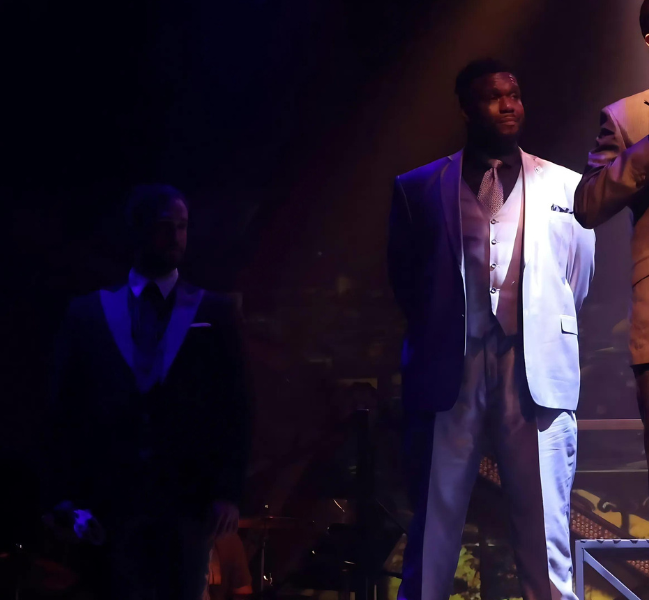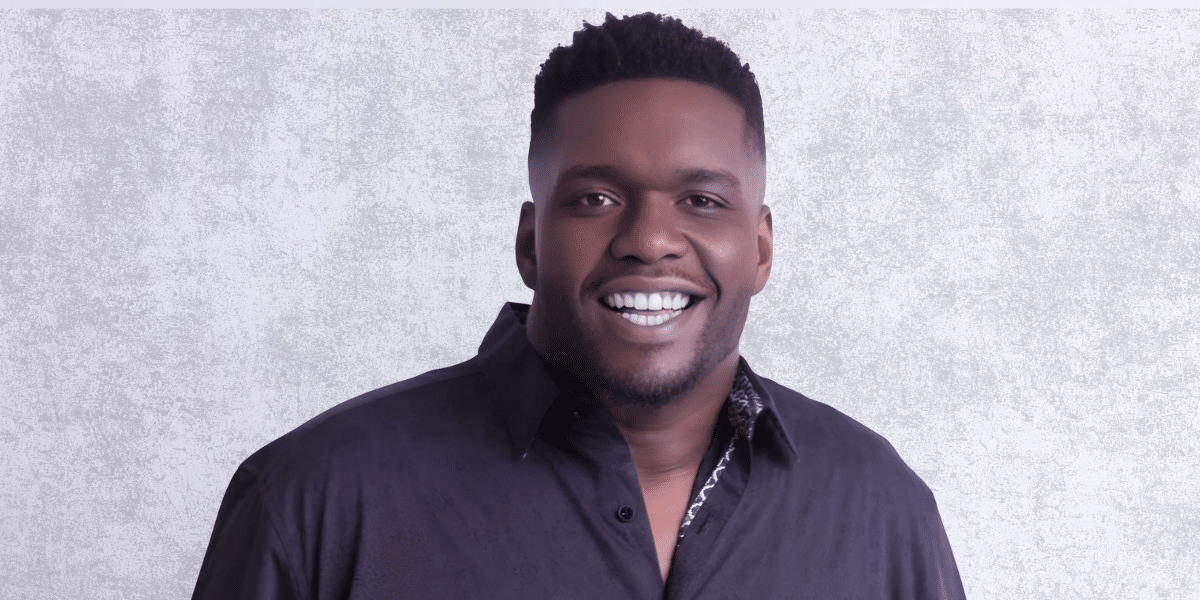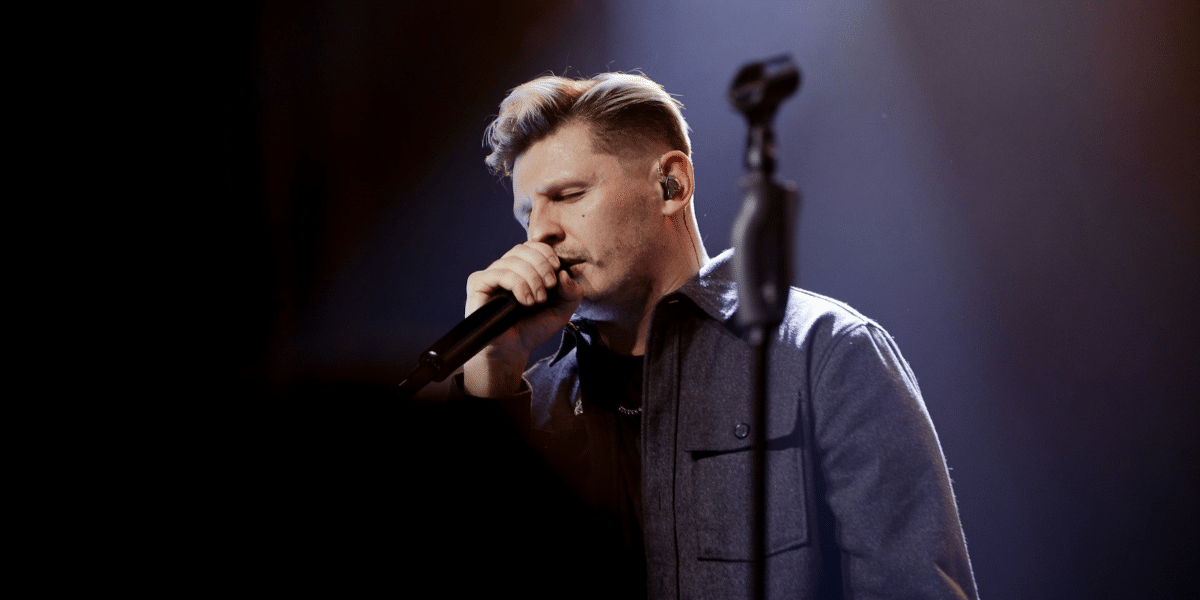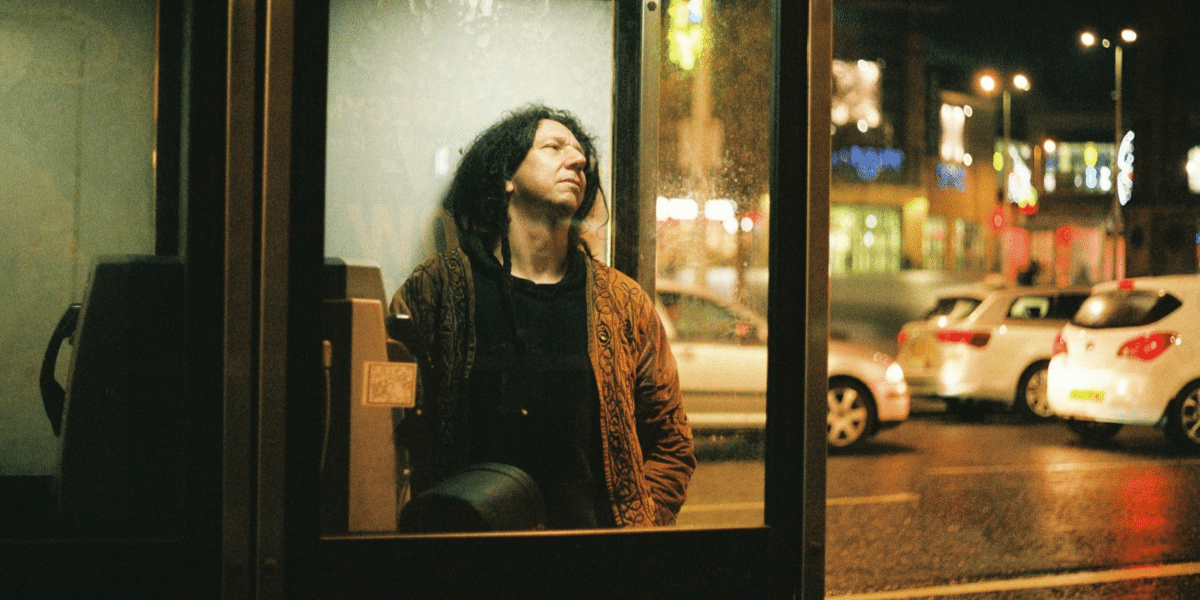By: Amanda Fields
In the world of musical theater, few roles are as demanding and iconic as that of Caiaphas in Andrew Lloyd Webber’s legendary rock opera Jesus Christ Superstar. This role requires not just a deep understanding of the character but also an exceptional vocal range and acting prowess to bring to life the high priest who is instrumental in the plot to crucify Jesus. Amidst a sea of talent, one performer stands out for his remarkable interpretation of this complex character: Phillip Brandon.
Phillip Brandon, known for his soulful voice and magnetic stage presence, brings a unique blend of experience from both his music career and past acting endeavors to embody Caiaphas with an authenticity that captivates audiences night after night. Currently gracing the stage in Flat Rock, North Carolina, Brandon’s performance is a testament to his dedication and passion for the arts.
“It is a great feeling being able to do what I love in front of so many diverse audiences,” shares Brandon. “Being on stage and playing the role of Caiaphas is exhilarating and something I will always remember.” This sentiment echoes through his performances, leaving an indelible mark on those fortunate enough to witness his portrayal.
Drawing from a rich tapestry of past roles, Phillip finds resonance with Caiaphas through an intricate process of character study and personal reflection. His journey into acting has seen him take on various characters, each adding layers to his craft and providing him with insights that he channels into his current role. But it’s not just his acting background that Phillip leans on; his extensive music career plays a pivotal role, too.
As a seasoned vocalist with an eclectic musical background ranging from jazz to rock, Phillip’s ability to navigate complex melodies and harmonies lends itself beautifully to Lloyd Webber’s score. His understanding of musical storytelling adds depth to Caiaphas’ songs, making them performances and profound emotional experiences for the audience.
Phillip’s approach to embodying Caiaphas involves merging these two worlds—his acting prowess and musical talent—to create a portrayal that is both commanding and nuanced. He delves deep into the character’s motivations and conflicts, using his voice as both an instrument of power and subtlety. This dual focus enables him to capture the essence of Caiaphas’ authority while hinting at the internal struggles accompanying leadership during tumultuous times.
Beyond his individual performance, Phillip acknowledges the collaborative nature of theater. Working closely with cast members portraying other key figures such as Jesus, Judas, and Mary Magdalene allows for dynamic interactions on stage that further enrich the narrative complexity of Jesus Christ Superstar. The synergy between cast members elevates their collective performance, making each show unforgettable.
Phillip’s connection with audiences extends beyond the footlights; he regularly engages with fans through social media, sharing insights into his artistic process along with snippets from rehearsals and performances. This digital engagement fosters a community around not just Phillip’s role as Caiaphas but also around Jesus Christ Superstar as a whole.
Looking ahead, Phillip views each performance as an opportunity for growth—both personally and professionally. He reflects on how this role challenges him artistically while also allowing him moments of profound personal insight into themes like leadership, sacrifice, and faith that remain relevant today.
As Jesus Christ Superstar continues its run in Flat Rock, North Carolina, under Phillip’s watchful gaze as Caiaphas, one can’t help but appreciate how roles like these require more than just technical skill—they demand heart, soul, and passion. These are qualities that Phillip embodies, fully bringing life not only to Caiaphas but also offering audiences around the world a chance to witness true artistry action.
Anyone fortunate enough to see Phillip perform will understand why he cherishes this experience so profoundly. His commitment to excellence and genuine love for what he does make every show a celebration of the human spirit.

Photo Courtesy: Phillip Brandon
I posed some thought-provoking questions to Phillip, and he shared some delightful insight into how he feels about his role in Jesus Christ Superstar, his music, and how acting helps blend them both.
1. How do you approach the role of Caiaphas in Jesus Christ Superstar? What aspects of his character resonate with you, and how do you bring that to life on stage?
Caiaphas is a fascinating character because, at his core, he believes he’s doing the right thing. What resonates with me most is his conviction—his belief in preserving order and tradition, even at great personal cost. When I step into his shoes, I try to channel that intensity, but I also bring out his vulnerability. He’s grappling with fear of the unknown and fear of losing control, and those emotions can fuel some powerful moments on stage.
2. The production is described as a blend of a concert and theater with a contemporary twist. How does this unique format influence your performance as Caiaphas, and what challenges or opportunities does it present?
This format adds so many layers to the role. As a performer with a background in both music and theater, I love how the concert aspect allows for a more literal connection with the audience. Under the brilliant direction and vision of Lisa Bryant, she allowed parts of the show to be directed right to the audience. You’re not just telling a story; you’re experiencing the music with them in real-time. It creates this raw energy that heightens every emotion. The challenge, of course, is balancing the theatricality with the concert vibe—it pushes me to bring a heightened presence while still honoring the character’s depth.
3. Jesus Christ Superstar explores power, oppression, and social change themes. How do you interpret these themes in your portrayal of Caiaphas, especially in the context of today’s social and political landscape?
Caiaphas embodies the struggle between maintaining the status quo and needing change. In today’s context, it’s even more poignant. Power dynamics and social justice are being questioned globally. For me, Caiaphas’ fear of losing power mirrors the resistance we sometimes see in those who are afraid of progress or change. My portrayal emphasizes that inner conflict—he’s a man who feels the ground shifting beneath him, and it’s both relatable and timely.
4. With your extensive background in music, how does the musical aspect of this rock opera challenge or enhance your acting? Are there specific moments in the score where you feel particularly connected to your character?
As a member for the last 15 years of the rock group Trans-Siberian Orchestra, the rock opera nature of Jesus Christ Superstar allows me to express emotions through a genre I deeply connect with. The music in this show is visceral—it drives so much of the storytelling. Caiaphas’ low, booming notes give him an authority that matches his role and really helps me ground myself in his mindset. It’s almost like the music becomes part of the character’s armor.
5. You’ve worked with a diverse cast and creative team. How important is collaboration in ensuring a cohesive performance, and how do you work with your fellow cast members to develop the energy and chemistry required for such a dynamic production?
Working with such a diverse and talented cast is crucial for this show. The energy on stage is infectious, and it takes all of us coming together to make it work. We feed off each other’s performances, and I always try to make it a point to connect with my fellow cast members both on and off stage. For instance, the role of Annas (Matías De La Flor) is Caiaphas’ right-hand man and highest confidant. So, a level of trust needs to be built for the chemistry to feel real. Every night is a new experience, and that’s a crucial part of the magic of live theatre.
6. Your forthcoming album is described as a journey through life’s ups and downs. How does your personal storytelling influence your portrayal of Caiaphas, and do you draw on any personal experiences when performing this role?
My own life and journey often inform how I approach my characters. While I haven’t been in the exact position of Caiaphas, I do understand what it’s like to grapple with change, to fight for something you believe in, even when it’s hard. The stories I tell through my music are full of those personal highs and lows, and I try to bring that emotional depth into my portrayal. It’s about finding the human side of this biblical figure and inviting the audience to experience and empathize with his point of view. This is my approach to storytelling, whether I write it or recite it.
7. The production has garnered enthusiasm from audiences. After witnessing the audience’s reactions during performances, what do you hope they take away from your portrayal of Caiaphas, and how do you think your performance contributes to their overall experience?
There’s nothing like seeing an audience react to your performance. With Caiaphas, I hope people leave understanding that he’s more than just the “villain.” He’s a complex person trying to navigate a tumultuous time in history. If my performance can make people question his motives or feel empathy for him, then I’ve done my job. Ultimately, I want them to leave reflecting on the show’s themes and how they resonate with their lives today.
To learn more about Phillip and the upcoming projects he’s involved in, visit PhillipBrandon.com. For any media requests, contact his publicist, Desirae L. Benson.
Published by: Holy Minoza
















